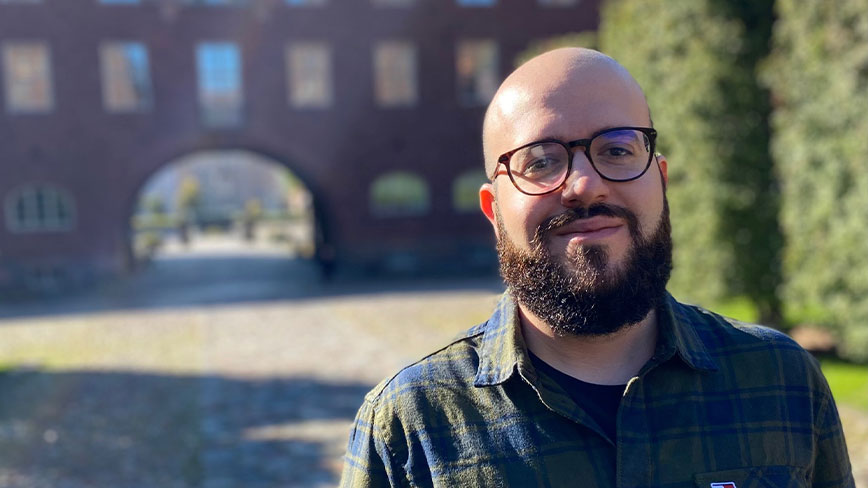Winner of the Google PhD Fellowship 2021
Congratulations, Alireza Farshin!

We met up with Alireza Farshin who has won the award Google PhD Fellowship 2021 and talked about what the fellowship will mean.
Hi, Alireza! Please tell us about the Google grant you have received and what it will cover.
"I have received the Google Ph.D. Fellowship 2021 in Systems and Networking. According to Google, this program has been created to recognize outstanding graduate students doing exceptional and innovative research in areas relevant to computer science and related fields. The award comprises a yearly bursary that covers my salary and conference travel fees. Additionally, Google matches each recipient with a research mentor."
What impact will this have on your research?
"This award will help me create professional connections, which can lead to more opportunities to collaborate with researchers at Google. Additionally, it may bring more visibility to my research and increase its chance of being picked up by the industry, resulting in a higher research impact.
I believe my research can contribute to all aspects of sustainable development and directly impact society, the economy, and the environment."
Tell us a bit about your research and the impact it will have on society.
"My research aims to realise low-latency Internet services via low-level optimisation of network functions (NF). In particular, I tackle some of the challenges of deploying Internet services on commodity hardware when dealing with very fast link speeds such as 100/200/400 Gbps. Commodity hardware refers to general-purpose, cheap, and flexible servers located in data centres, which perform fundamental tasks required for providing Internet services such as email, web, and social media. As the link speeds increase, these servers receive packets at a much higher rate (e.g. one packet every 6.72 nanoseconds on a 100-Gbps link), making it more challenging to process packets efficiently. The recent technology shifts such as 5G connectivity, IoT, machine-to-machine communication, and the digital transformation of the industry make this research problem a very relevant problem for large service/cloud providers.
I believe my research can contribute to all aspects of sustainable development and directly impact society, the economy, and the environment. By employing the current and future contributions of my research, cloud and service providers (e.g. Google) will use their resources more efficiently, thereby serving more users with their currently deployed infrastructure, both postponing the need for expansion (reducing CAPEX) and reducing their expenses (OPEX). The existing hardware could provide more effective processing, making many services cheaper and more affordable, thereby directly affecting people's lives and leading to greater equity in the society; and many services could be deployed on fewer processing cores (or fewer servers), reducing power consumption, hence decreasing the environmental footprint of these services."
